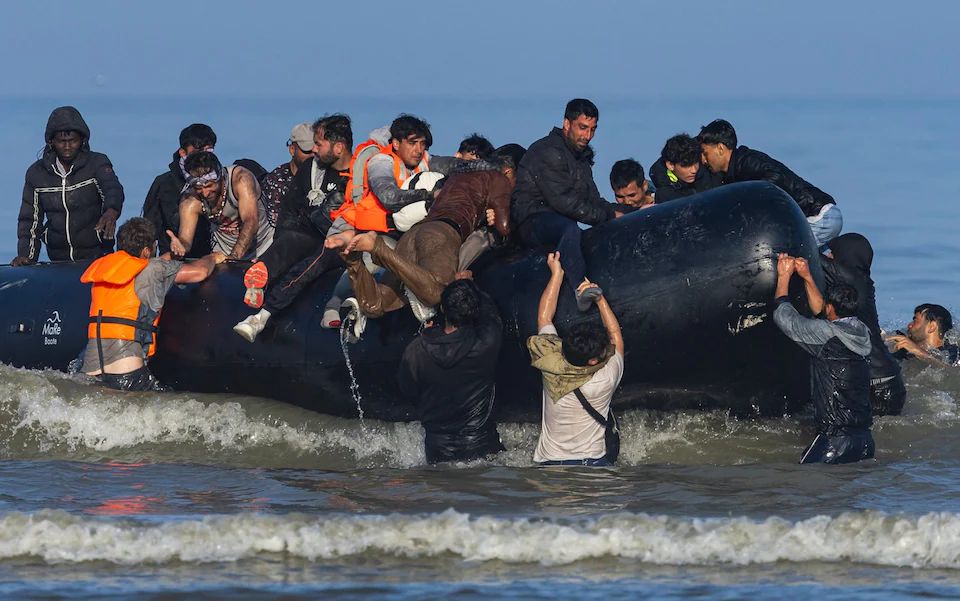Around 100 people, including several children, attempted to swim from Morocco into Spain’s North African enclave of Ceuta early on Saturday morning, despite warnings that the territory’s reception system was nearing collapse.
Recent weeks have seen a surge in the number of migrants trying to reach Ceuta, with more than 50 children swimming across from Morocco on 26 July alone. On Saturday, dozens attempted the perilous journey in the hope of reaching the Spanish enclave, taking advantage of foggy conditions that made it harder to spot them.
Spanish authorities confirmed that while most of the migrants were intercepted before reaching Ceuta, seven children managed to arrive on the shore, where they were handed over to regional authorities.
“About 100 people tried to get in, taking advantage of the foggy conditions,” said a spokesperson for the Spanish central government’s delegation in Ceuta. “But they didn’t manage to do so because Moroccan security forces and Spain’s Guardia Civil, working with rescue boats, prevented them from getting to Ceuta.”
The Spanish authorities confirmed the arrival of the seven children, marking the latest in a growing wave of attempts by migrants to enter Ceuta.
To reach the enclave, many migrants must swim across the treacherous currents of the Strait of Gibraltar, navigating around the long border fences that divide Ceuta from Moroccan territory. In smaller groups, migrants can be easy to spot, so they often take advantage of foggy weather or night-time conditions to increase their chances of success. Those who are intercepted are typically returned to Morocco.
In late July, Juan Jesús Rivas, the conservative president of Ceuta, warned that the enclave was “totally overwhelmed” by the number of young migrants it was hosting. He urged other Spanish regions to take in some of the children to relieve the burden on the small territory.
“We’re a territory that comprises 20 square kilometres of the 500,000 square kilometres that make up the whole of Spain, but we take in 3% of the minors,” Rivas told El País. “Who doesn’t get that this is an unsustainable situation? The situation in Ceuta is one of collapse, and that poses a very serious risk when it comes to looking after minors and the city as a whole.”
By the end of July, the enclave was hosting 528 foreign minors, far exceeding its official capacity of just 27. Alberto Gaitán, Ceuta’s government spokesman, pointed out that contingency plans were already in place to send children to other parts of Spain.
“Between 2021 and 2024, around 450 minors, to which we should add another 80 due to family reunification in different parts of Spain, were relocated to other self-governing regions,” said Gaitán. “That shows that other regions, regardless of their political hue, are willing to help and have demonstrated they can ease the burden on Ceuta.”
In response to the growing crisis, Spanish MPs passed a decree in late July to redistribute the 4,400 foreign minors across the Canary Islands, Ceuta, and Melilla to other regions of Spain. The decree, introduced by the socialist-led government, has faced criticism from the conservative People’s Party (PP), who called it “arbitrary and unfair”. The far-right Vox party also opposed the move, arguing it opened “the doors to military-age men who aren’t fleeing wars and come from opposing cultures.”
The PP-led regions also boycotted a meeting on the redistribution of minors in July.
IOM report on migrants
The UN’s International Organization for Migration (IOM) reported that 572 people died or went missing last year while attempting to reach Spain from North Africa. So far this year, 155 people have lost their lives in similar attempts, including seven children.



